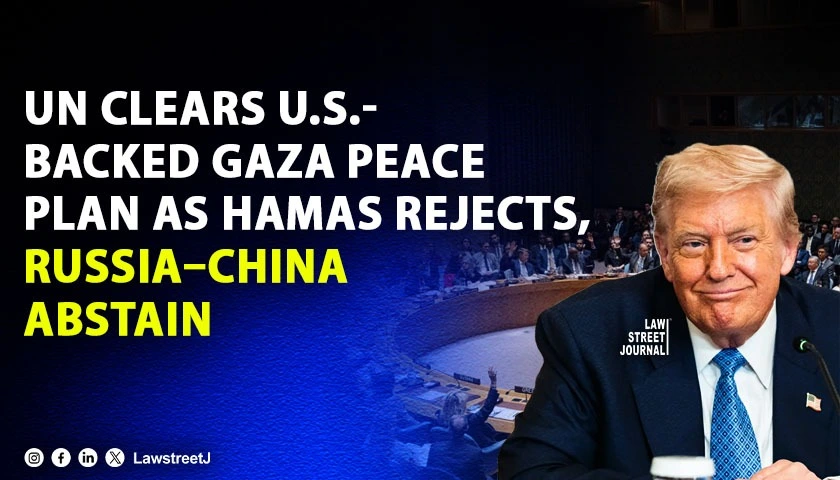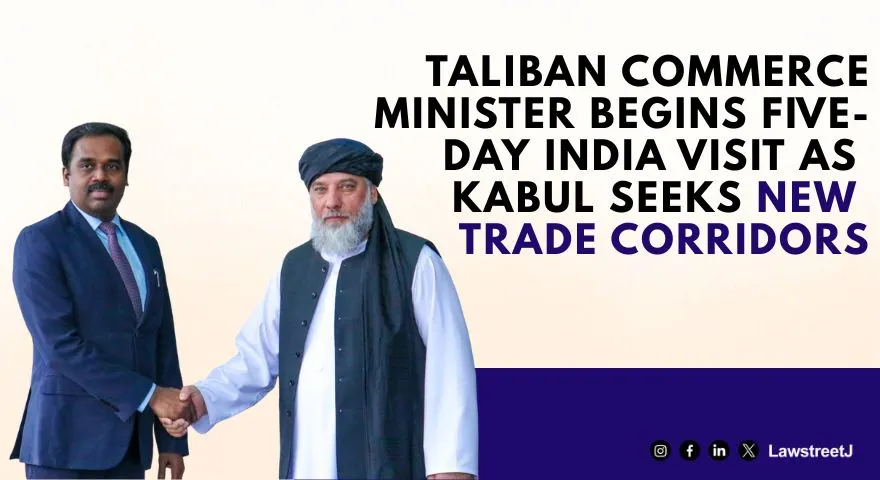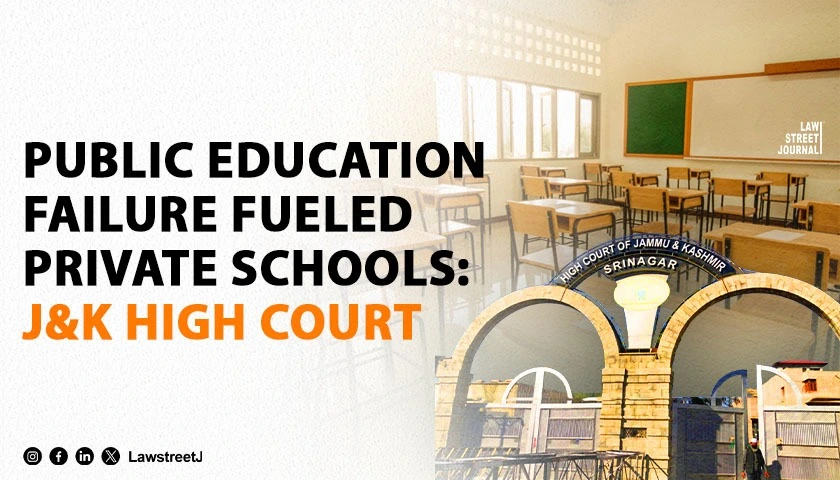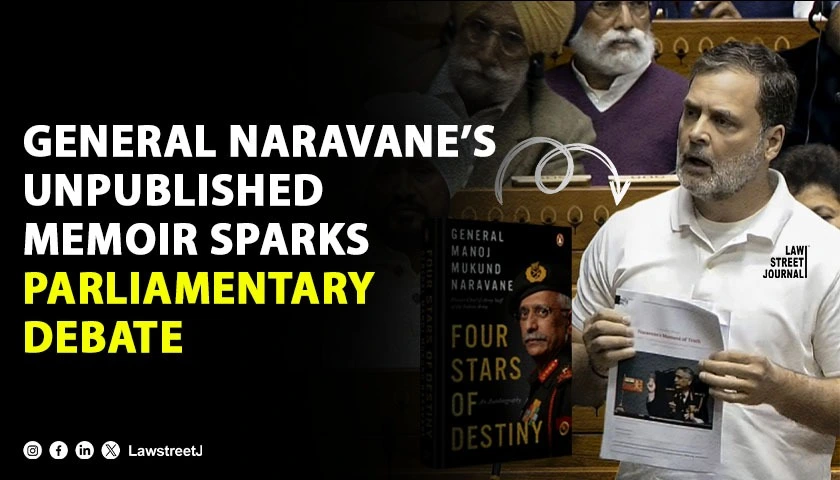New Delhi: The United Nations Security Council voted on November 17, 2025, to adopt Resolution 2803, a measure built around a U.S.-drafted peace plan for Gaza and the creation of a temporary international stabilization force. Thirteen members supported the text, while Russia and China abstained. Their abstentions, rather than vetoes, allowed the resolution to pass under Security Council rules.
Resolution 2803 (S/RES/2803) provides a legal foundation for a transitional governing structure in Gaza and authorizes the formation and deployment of an International Stabilization Force (ISF). The measure, introduced by the United States, secured backing from several regional governments, including Egypt and Saudi Arabia. It formally endorses the 20-point Comprehensive Plan announced by U.S. President Donald Trump on September 29, 2025, outlining political, security, and reconstruction steps for Gaza’s interim period.
The resolution lays out several key elements:
- The creation of a Board of Peace to function as Gaza’s transitional governing body until the end of 2027, chaired by the United States.
- Authorization for member states to send personnel to the ISF, which will work with Israeli and Egyptian forces and newly trained Palestinian police units.
- Measures for the demilitarization of Gaza, including the removal of weapons, dismantling of military installations, and verification of compliance.
- A structured program for economic recovery and reconstruction, to be supervised by the Board of Peace and supported by international donors.
The Council adopted the resolution during its 10,046th meeting. The text invokes Chapter VII of the UN Charter, reserved for situations the Council considers a threat to international peace and security. This gives participating states a clear legal mandate to undertake enforcement measures necessary to stabilize Gaza during the transition period.
In addition to the security and administrative framework, the resolution assigns reporting duties to the UN Secretariat. Regular updates to the Security Council will cover the work of the ISF, the functioning of the transitional administration, and the status of reconstruction and demilitarization projects.
Diplomatic Landscape: Russia and China Abstain, Hamas Rejects the Plan
Russia, which had earlier expressed doubts regarding the proposal’s political implications, ultimately abstained rather than casting a veto. China followed the same course. Both governments raised concerns about sovereignty issues and the strategic role assigned to the United States and regional allies. However, neither chose to block the resolution. No member voted against it.
Hamas, which remains the de facto governing authority in Gaza, rejected the resolution on November 18. The group stated that the deployment of an international force violates Palestinian sovereignty and objected to the absence of direct Palestinian representation on the Board of Peace. Hamas announced that it would not cooperate with any foreign-backed transitional authority.
This rejection introduces practical complications. While the Security Council has invoked Chapter VII—allowing international action without local consent—the implementation of the ISF and the transitional governance framework may face obstacles on the ground. Humanitarian access, coordination with local institutions, and demilitarization steps could be affected by the group’s refusal to participate.
International law allows the Security Council to authorize enforcement measures, but operations typically require some level of cooperation from actors present in the territory. The gap between legal authority and actual implementation remains a central challenge in the months ahead.
Implementation Timeline and Legal Responsibilities for Participating States
The resolution includes a multistage plan beginning with the ceasefire agreement reached between Israel and Hamas in October 2025. The next steps proceed in phases:
- Deployment of ISF units contributed by participating member states.
- Formation of the Board of Peace and appointment of officials responsible for security, administration, and reconstruction.
- Launch of reconstruction and economic assistance programs.
- Establishment of mechanisms to verify the removal of weapons and dismantling of military infrastructure.
Countries contributing to the ISF are required to comply with international humanitarian law, including the Geneva Conventions. The resolution contains explicit language on legal obligations related to civilian protection, conduct during military operations, and coordination with humanitarian agencies.
A notable feature is the reference to a “credible pathway” toward Palestinian statehood. Although not binding, it signals that future diplomatic discussions may include steps related to long-term political status. This reflects the positions of several regional actors who argue that reconstruction and stabilization efforts should be tied to a broader political roadmap.
Experts in international law note that Resolution 2803 merges several types of UN mandates—peacekeeping authorization, transitional governance, reconstruction oversight, and demilitarization—into one integrated framework. While similar elements have appeared in past UN operations, the consolidation into a single resolution marks a distinct approach.
The resolution’s effectiveness will depend on cooperation from member states, sustained funding for reconstruction, and the ability of international personnel to operate in areas where local acceptance remains limited. The next reporting cycle to the Security Council will provide the first formal assessment of progress under the mandate.










